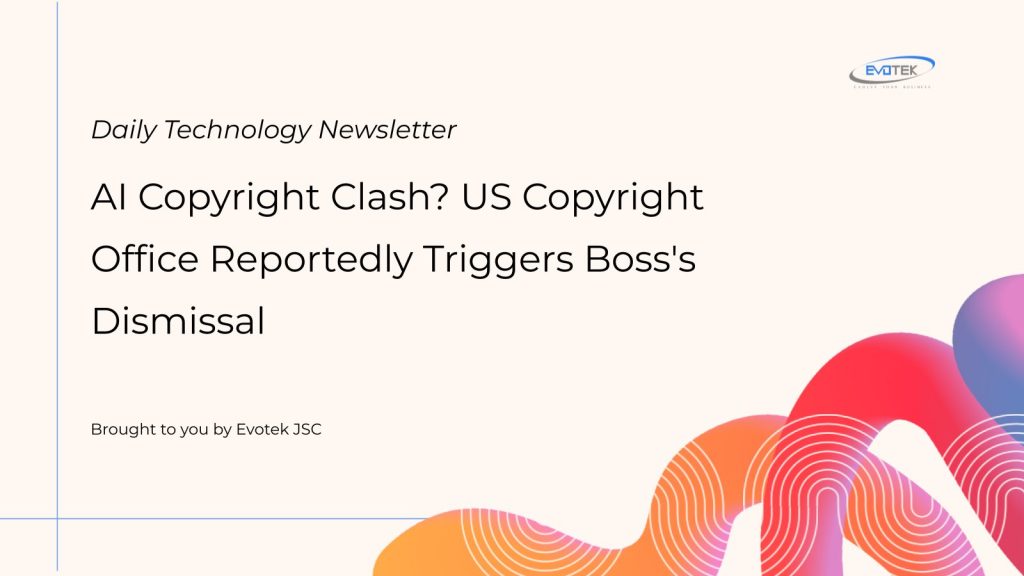The US Copyright Office recently released a draft report indicating that AI companies’ use of copyrighted material sometimes exceeds “fair use” doctrines. The next day, the head of the office was reportedly terminated, raising eyebrows and sparking debate about potential motives.
Copyright Office’s AI Report: A Loss for AI Companies?
The Copyright Office’s draft report, part three of its study on copyright and artificial intelligence, delves into the use of copyrighted works in developing generative AI systems. The report acknowledges that these systems rely on vast datasets, including copyrighted material, and questions whether developers need permission or should compensate copyright owners.
This issue is at the heart of several lawsuits, as AI companies have admitted to training their models on scraped content without compensating creators. These companies often invoke “fair use” as a defense.
The report suggests that AI companies may not be able to claim fair use when they commercially exploit copyrighted material to create expressive content that competes with existing markets, especially when achieved through illegal access.
Tech law professor Blake E. Reid described the report as “very bad news for the AI companies in litigation,” naming Google, Meta, OpenAI, and Microsoft as examples. All four companies donated to Donald Trump’s inauguration fund.
Timing Coincidence or Something More?
Adding fuel to the fire, Shira Perlmutter, the head of the Copyright Office, was reportedly fired shortly after the report’s release. Representative Joe Morelle (D-NY) suggested the termination was related to Perlmutter’s refusal to “rubber-stamp Elon Musk’s efforts to mine troves of copyrighted works to train AI models.” This refers to Musk’s plans to train his “Grok” AI on X user data and his recent endorsement of eliminating IP law.
However, another explanation exists. The Copyright Office is part of the Library of Congress, whose leader was recently fired due to concerns about DEI (diversity, equity, and inclusion) initiatives. Thus, Perlmutter’s dismissal could be part of a broader policy shift.
The situation remains complex, with potential implications for the future of AI development and copyright law. Was the firing a politically motivated move to favor specific tech figures, or part of a broader policy change? Only time will tell.
Keywords: AI, Copyright, US Copyright Office, Fair Use, Elon Musk, Shira Perlmutter, Generative AI, Intellectual Property, DEI, Trump Administration

 日本語
日本語 한국어
한국어 Tiếng Việt
Tiếng Việt 简体中文
简体中文